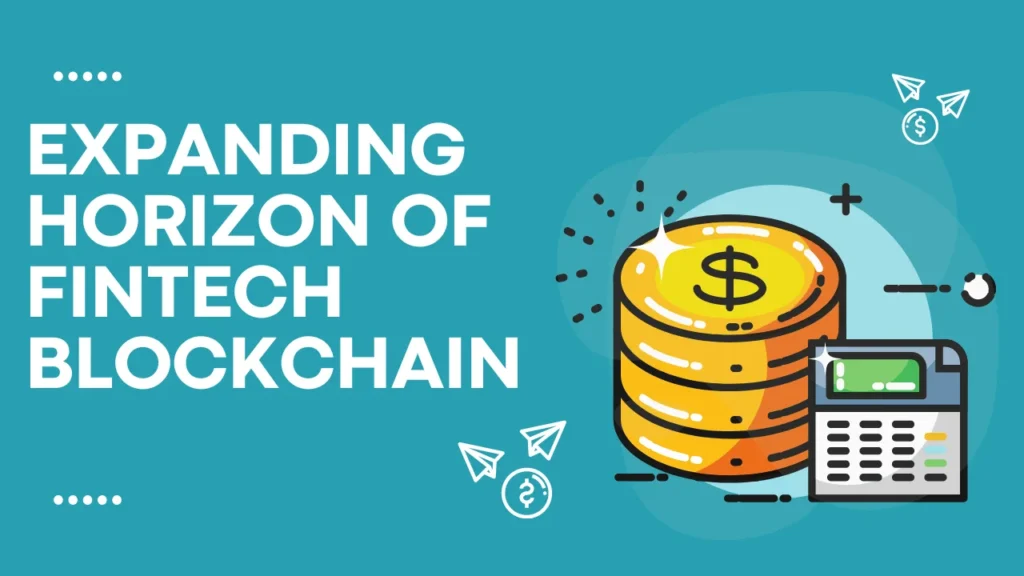A revolutionary combination of blockchain technology and financial technology, fintech blockchain is a game-changer. The merger is having a profound effect on the administration and delivery of financial services. In the past, fintech has mostly dealt with the underlying infrastructure of well-established banks. It has now expanded to include retail banking, investment management, and fundraising, all of which are consumer services. By providing a distributed, immutable, and transparent digital ledger, blockchain technology improves the efficiency and safety of financial transactions.
Innovative Payment Processing
Payment processing is one area that fintech blockchain is revolutionizing. It eliminates the need for centralized financial institutions and allows for nearly instantaneous transactions while protecting the integrity of data. Faster and cheaper transfers are the result, and problems like unpredictable exchange rates and exorbitant international transfer fees are avoided. Ripple and Mastercard are two of the major players using blockchain technology to improve payment systems. They provide both direct and hybrid payment solutions.
Hybrid Payment Systems
These systems demonstrate the versatility and adaptability of blockchain technology in modern finance by combining traditional currencies with those based on the technology. To build a financial ecosystem that is more accessible and efficient, they are a giant leap forward.
Blockchain in Investment and Stock Markets

Investment Management
To reduce the time and money associated with conventional stock market operations, blockchain technology streamlines and secures investment procedures in trading. It streamlines investment processes by eliminating intermediaries and strengthening data security through the use of smart contracts and peer-to-peer transactions.
Rise of ICOs
The innovative blockchain-based Initial Coin Offerings (ICOs) are quickly becoming a formidable alternative to more conventional forms of fundraising such as Initial Public Offerings (IPOs).
Customer Rewards
In the financial sector, blockchain is revolutionizing loyalty and rewards programs. Whereas conventional programs are vulnerable to data breaches and inefficiencies, blockchain-based systems improve security, increase accuracy, and enable smart contracts to offer real-time rewards, fostering customer loyalty and trust.
Expanding Horizon of Fintech Blockchain

(DeFi Leading the Charge
Decentralized Finance (DeFi) is essential in reducing the dominance of traditional banks in financial services, and the fintech blockchain industry is poised for enormous growth as a result. The effectiveness of blockchain in addressing typical issues in the financial technology industry, such as over-reliance on centralized systems, lack of transparency, slow procedures, and high operational costs, is driving this change.
Redefining Financial Landscape
Blockchain technology has the potential to revolutionize the financial sector by solving these problems and providing new levels of efficiency, security, trust, and openness.
Blockchain Digital Ledger in Finance
Data Integrity and Transparency
Unparalleled data integrity and transparency are guaranteed by blockchain’s digital ledger technology in the financial sector. The possibility of fraud or mistakes is practically eliminated because all network participants can see each transaction recorded on a decentralized ledger. By being open and honest, this system builds trust among users and ensures that all financial transactions are secure.
Revolutionizing Retail Banking
Retail banking is one area where blockchain technology is gaining traction. It provides a more streamlined, safe, and user-friendly banking experience by streamlining procedures like loan disbursement and credit reporting. Banks can use blockchain technology to cut operational costs, which means they can offer better rates and lower fees to their customers.
Blockchain Streamlining Operational Processes

The use of blockchain technology in the financial sector greatly improves efficiency. Blockchain eliminates the need for human intervention in settlements and clearing, which speeds up transactions and minimizes human error. The broad adoption of blockchain technology in different financial services is largely driven by this efficiency gain.
Reducing Costs
Saving money is just one more way that blockchain works. Blockchain technology allows financial institutions to reduce costs by doing away with middlemen and speeding up transactions. This means that customers may be able to afford more affordable services. The combination of improved accessibility and cost-effectiveness makes financial services more inclusive.
Fundraising Initiatives
Transforming Traditional Fundraising Models
There has been a shift in the fundraising landscape due to blockchain technology. More and more businesses and startups are turning to initial coin offerings (ICOs) and tokenization as a means to raise capital. The financial ecosystem is becoming more diverse and dynamic as a result of the democratization of fundraising, which empowers smaller investors and innovators.
Transparency in Fundraising
With blockchain technology, investors can see exactly how their money is being spent and what the results are in real-time, making fundraising more transparent than ever before. Fundraising campaigns that are open and honest with their backers are more likely to succeed.
Blockchain Financial Data Security
Data Protection
Data security is of the utmost importance in the financial technology industry. Because of its decentralized nature and built-in security features, blockchain technology greatly improves data protection. Secure financial data is better protected by the blockchain because its structure makes data tampering by hackers very difficult.
Regulatory Standards
Financial institutions can also benefit from blockchain technology when it comes to meeting regulatory requirements. An accurate and immutable audit trail is essential for regulatory reporting and compliance, and blockchain records help maintain this.
Facilitating Direct Financial Exchanges
Blockchain-based, peer-to-peer transactions are changing the game for commercial and consumer transactions alike. Faster, cheaper, and more transparent transactions are possible thanks to their ability to eliminate middlemen. Because this method eliminates the middleman and their fees, it is ideal for cross-border transactions.
Control Over Their Finances
Customers are given complete agency over their financial transactions through blockchain technology. Institutions used to have a lot of sway over user transactions in traditional financial systems, so this decentralization is a big change.
Blockchain Enhanced Financial Services
Revolutionizing New Approaches
In addition to improving preexisting financial services, blockchain technology is opening the door to novel, ground-breaking new ones. A world of possibilities beyond traditional financial models is opened up by blockchain technology. These possibilities include microloans, insurance, and new forms of asset management.
Catering Global Audience
Because of its widespread use, blockchain technology is well-suited to meet the needs of a wide range of users from all over the world. It provides a single hub that can connect users regardless of their location, making it an effective instrument for international financial inclusion and collaboration.
For More Visit: Blockchain Companies in India: Results
Frequently Asked Questions
How is Blockchain Transforming Fintech?
Blockchain is revolutionizing fintech by introducing decentralized, secure, and efficient systems for transactions, investment, and customer loyalty programs.
What are the Benefits of Blockchain-Based Payment Systems?
They offer faster, more cost-effective transfers, reduced dependency on central institutions, and integration of traditional and digital currencies.
How Do ICOs Differ from Traditional Fundraising?
ICOs provide a blockchain-based alternative for capital raising, offering more direct, secure, and efficient methods than traditional IPOs.
Can Blockchain Improve Data Security in Fintech?
Yes, blockchain enhances data security through its immutable and transparent nature, significantly reducing the risk of data breaches.
What Future Developments are Anticipated in Fintech Blockchain?
Expect continued growth in DeFi, more integrated hybrid payment systems, and further advancements in blockchain’s application in financial services.
Conclusion
The advent of fintech blockchain represents a sea change in the financial sector, not merely a passing fad. A new age in financial services is dawning as fintech—known for its agility and user-centric approach—marries blockchain—known for its robust and secure framework. We live in a world where investing is easier, transactions take less time, and customer loyalty is protected and rewarded. One thing is becoming abundantly clear as we gaze into this future: fintech blockchain is utterly transforming the financial sector.

Brandy Stewart, an enchanting wordsmith and seasoned blogger, weaves compelling narratives that transport readers to uncharted territories. Infused with perceptive viewpoints and dynamic storytelling, Doris exhibits a command of language that enthralls both hearts and minds, leaving a lasting mark on the literary panorama.

